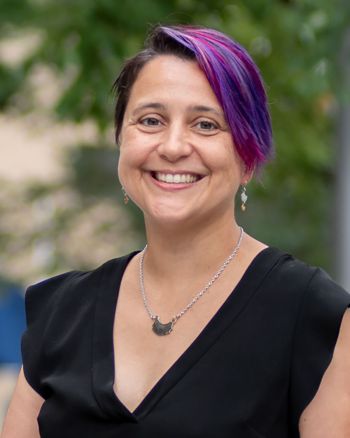
In a study published in PLOS One, Mandi Pratt-Chapman, PhD, associate center director for patient-centered initiatives and health equity at the George Washington University Cancer Center, analyzed the experiences of transgender and gender-diverse (TGD) patients seeking care in Washington, D.C. A long-standing lesbian, gay, bisexual, transgender, queer, and intersex (LGBTQI) Community Advisory Board, which identified transgender people’s specific needs as an area that warranted additional research, conceptualized Pratt-Chapman’s study.
TGD patients have distinct health needs, particularly when it comes to anatomy-driven cancer screenings. Pratt-Chapman, the principal investigator for the study, and her team conducted interviews with 21 TGD patients about their experiences with health care in general and during cancer screenings specifically.
Three primary themes emerged from the team’s analysis: health care-seeking behaviors, quality care, and TGD-specific health care experiences. Factors that affected health care-seeking behaviors included insurance coverage, health care costs, convenience, trust or mistrust of the care provider, and the provider’s recommendations for screenings. Pratt-Chapman’s team also found that professionalism, care coordination, clinical competence in transgender care, provider communication, and patient self-advocacy affected the quality of health care that participants received. The team noted that within this study, transgender men who participated reported less satisfaction with their care than transgender women.
“Transgender and gender diverse people may have experienced discrimination in health care settings or awkward — even painful — encounters that make those individuals reluctant to seek medical care until their situation is serious,” Pratt-Chapman said. “One participant indicated that they were unlikely to seek care until the pain was acute or they felt they would die. There is a clear need for affirming, transgender-competent care. These patients must feel safe in order to prioritize routine health issues and receive cancer screenings.”
Based on the results of the study, Pratt-Chapman and her team found that providers need to give clear explanations of procedures and recommendations for cancer screenings, as well as improve their clinical knowledge and cultural competency with TGD patients. The study participants also indicated a desire for better care coordination and help with navigating insurance. Pratt-Chapman is currently leading a pilot educational study funded by the National Institutes of Health to help clinicians improve their knowledge and competence in LGBTQIA cancer care called TEAM SGM.


